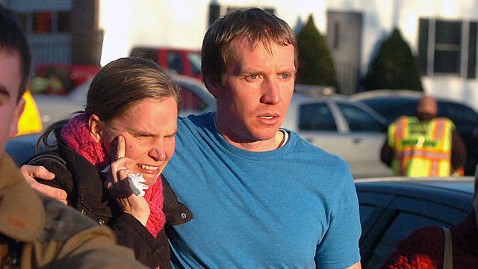TOKYO (Reuters) - Japan voted on Sunday in an election expected to return the conservative Liberal Democratic Party (LDP) to power after a three-year hiatus, giving ex-Prime Minister Shinzo Abe a chance to push his hawkish security agenda and radical economic recipe.
Polls opened at 0700 a.m. (2200 GMT) and will close at 8 p.m. (1100 GMT), when major TV broadcasters will issue exit polls forecasting results.
An LDP win would usher in a government committed to a tough stance in a territorial row with China, a pro-nuclear power energy policy despite last year's Fukushima disaster and a potentially risky prescription for hyper-easy monetary policy and big fiscal spending to beat deflation and tame a strong yen.
Media surveys have forecast the LDP will win a big majority in parliament's powerful 480-seat lower house, just three years after a devastating defeat that ended more than 50 years of almost non-stop rule by the business-friendly party.
Together with a small ally, Abe's LDP could even gain the two-thirds majority needed to break through a policy deadlock that has plagued successive governments for half a decade.
Prime Minister Yoshihiko Noda's unpopular Democratic Party of Japan (DPJ), hit by a stream of defections, is likely to win fewer than 100 seats, less than a third of its tally in 2009. Voters feel the DPJ failed to deliver its 2009 election pledges.
"Whether it's relations with South Korea, problems with North Korea or trouble with China, on every front the Democratic Party's diplomacy has gone terribly," said Makoto Mizuno, a 58-year old company employee who was voting for Abe's party.
However, many voters remained undecided just days before the vote, the polls showed.
Voter distaste for both major parties has spawned a clutch of new parties including the right-leaning Japan Restoration Party founded by popular Osaka Mayor Toru Hashimoto.
Abe, 58, who quit abruptly as premier in 2007 after a troubled year in office, has been talking tough in a row with China over uninhabited isles in the East China Sea, although some experts say he may temper his hard line with pragmatism once in office.
The soft-spoken grandson of a prime minister, who would become Japan's seventh premier in six years, Abe also wants to loosen the limits of a 1947 pacifist constitution on the military, so Japan can play a bigger global security role.
The LDP, which promoted atomic energy during its decades-long reign, is expected to be friendly to nuclear utilities, although deep public safety concerns remain a barrier to business as usual for the industry.
A mother of two voting at a polling booth in Akasaka said she could not support the LDP because of their past stance on nuclear energy.
"I can't vote for a party that promoted nuclear power for decades. Politicians forget what happened last year (after the quake). I have children and I have to think about their future," said a 43-year old housewife who declined to give her name.
She said she was voting for the Tomorrow Party of Japan, which aims to shut down all nuclear reactors within 10 years, much earlier than the current government's goal to phase out the energy source by the 2030s.
ECONOMY IN DOLDRUMS
Abe has called for "unlimited" monetary easing and big spending on public works, to rescue the economy from its fourth recession since 2000. But such policies, a centrepiece of the LDP's platform for decades, have been criticized by many as wasteful pork barreling.
Many economists say that prescription for "Abenomics" could create temporary growth and enable the government to go ahead with a planned initial sales tax rise in 2014 to help curb a public debt now twice the size of gross domestic product.
But it looks unlikely to cure deeper ills or spark sustainable growth, and risks triggering a market backlash if investors decide Japan has lost control of its finances.
Japan's economy has been stuck in the doldrums for decades, its population ageing fast and big corporate brands faltering, making "Japan Inc" a synonym for decline.
Consumer electronics firms such as Sony Corp are struggling with competition from foreign rivals and burdened by a strong yen, which makes their products cost more overseas.
Noda's DPJ surged to power in a historic victory in 2009 promising to pay more heed to consumers than companies and put politicians, bureaucrats, in charge of policymaking.
Many voters now feel the DPJ failed to meet its election pledges as it struggled to govern and cope with last year's huge earthquake, tsunami and nuclear disaster, and then pushed through an unpopular sales tax increase with LDP help.
"Basically over the last three years the ruling Democratic Party has tried to do all sorts of things, but every policy they've tried has backfired," said Shunichi Asanagi, a 40-year old company executive voting for the LDP.
(Additional reporting by Mari Saito, Ruairidh Villar, Leika Kihara, Editing by Raju Gopalakrishnan and Michael Perry)















